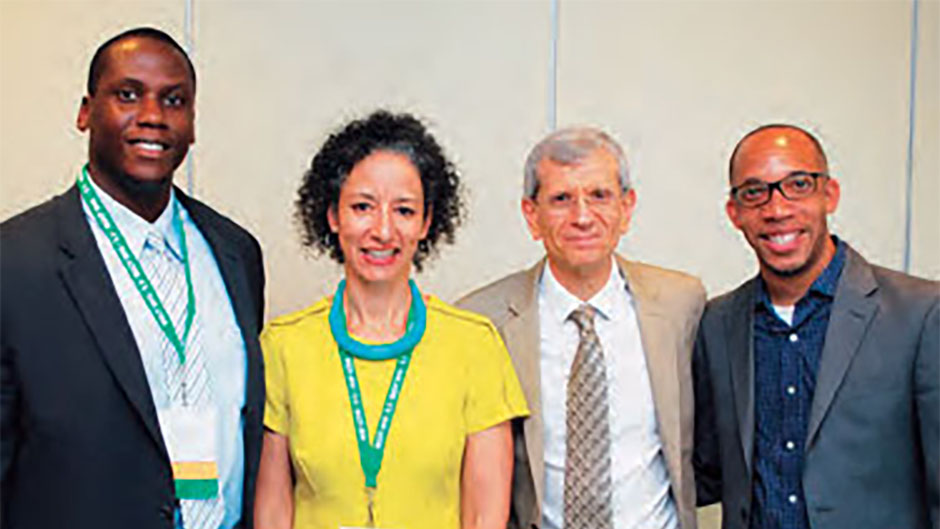“We had a record number of submissions for this intensive conference experience,” said conference co-chair Laura Kohn-Wood, associate professor and chair, Department of Educational and Psychological Studies (EPS) in the School of Education and Human Development. “Our attendees took full advantage of four days of research and professional development, networking, and mentoring opportunities.”
-Liana Mentor, a graduate student in the school’s Ph.D. program in Community Well-Being
Inde igitur, inquit, ordiendum est.
The BGCP’s panel discussions, paper and poster presentations, and lunch table topic conversations touched on a wide range of important research areas in psychology, including the development of racial identity, the impact of HIV Intervention on black college women, home literacy practices in Haitian families, and community needs assessments. Several of the sessions also focused on academic career paths involv-ing research, teaching, and service.
We thank our guest faculty, as well as our students, for making this commitment to our conference. As a legal scholar, I appreciate the importance of psychology in advancing how we think about rational behavior. Your research in identity develop-ment has also played an important role in law.”
-Charlton Copeland
”Find your passion and it will guide your career,” said Joan Muir, professor, Department of Epidemiology and Public Health, Miller School of Medicine, on one of the professional development panels. “For me, it’s about helping black families raise strong, healthy children.”
At the conference’s opening dinner, Thomas LeBlanc, executive vice president and provost, welcomed attendees and invited them to join the UM faculty after earning their degrees. “We are building a diverse community of scholars, and hope you will apply here,” he said.
Isaac Prilleltensky, professor and dean, School of Education and Human Development and Vice Provost for Institutional Culture, said “UM is moving ahead with its wide-ranging initiative to build a culture of diversity and belonging. We want everyone to feel valued. We also want to be sure our faculty, staff, and students have an opportunity to add value to our university and the community.”
Guillermo Prado, dean, Graduate School, said there is great value in this type of conference. “I attribute much of my success to attending a conference for Hispanic doc-toral students a decade ago,” he said. “It helped give me a direction in my career, while meeting mentors and making friends that I still have today.”
The conference faculty included Roger McIntosh, assistant professor, Department of Psychology, College of Arts and Sciences; Charlton Copeland, professor, School of Law; and president, Woodson-Williams Marshall Association of Black Faculty and Administrators; and Guerda Nicolas, professor, EPS, School of Education and Human Development, as well as 15 additional faculty, chairs, and deans from across the country.
“We thank our guest faculty, as well as our students, for making this commitment to our conference,” said Copeland. “As a legal scholar, I appreciate the importance of psychology in advancing how we think about rational behavior. Your research in identity development has also played an important role in law.”
Kevin Cokely, professor, Department of Educational Psychology and Department of African and African American Diaspora Studies, College of Education, University of Texas at Austin and editor-in-chief, The Journal of Black Psychology, delivered the keynote address.
The conference was funded by a grant to the University of Michigan from the National Science Foundation; several units at the University of Miami provided additional funding, including the Provost’s office, the Dean of the School of Education and Human Development, the Graduate School, the Department of Psychology, and the Woodson Williams Marshall Association. UM students on the planning committee included Dorothy Addae, Amina Simmons, Shannon Chiles, Kayann Richards, Vanessa Thomas, Calvin Fitch, Rhoda Moise, and Atara Muhammad.
Black Graduate Conference on Psychology

